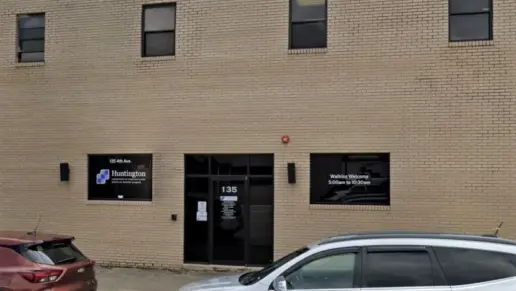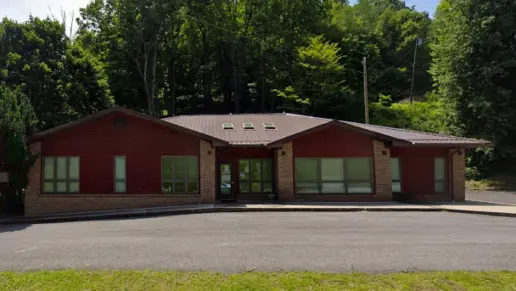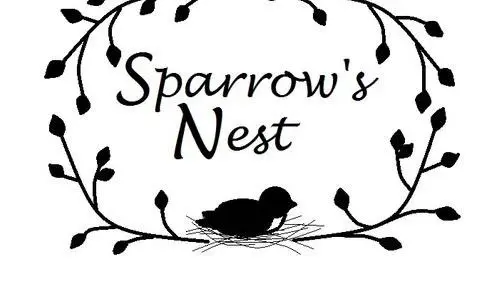The staff want to judge and be so rude to the patients it's and all day event to see the doctors there is no organization at all.
About Clarksburg Comprehensive Treatment Center
Clarksburg Comprehensive Treatment Center is located in Clarksburg, West Virginia, and offers treatment for adults who are struggling with substance use disorders. They accept Medicaid, Medicare, TRICARE and commercial insurance. They also accept credit and/or debit card payments for self-pay.
What makes them so unique is the flexibility they offer to better accommodate your needs. Maintaining your day to day responsibilities can be difficult when you’re dealing with symptoms that are substance abuse related. They have same-day admission and appointment scheduling available 24 hours a day seven days a week to get you connected to the care you need and assist you in your journey of recovery.
What stands out to me the most is the variety of different medications available if you’re struggling with opioids, heroin or prescribed painkillers. Their medication assisted treatment (MAT) program combines both counseling and medication. The medications they utilize are methadone, buprenorphine, Vivitrol and Suboxone. These medications can help alleviate the discomfort of withdrawals and cravings.
What I find amazing about them is how much importance they put on receiving counseling and group therapy. Some of the many topics that will be discussed in group therapy include anger management, developing coping skills and how to prevent relapse. This can better set you up for success in your recovery because of increased awareness of triggers and better knowledge of how to maintain sobriety.
The center’s location in Clarksville offers nearby nature areas where you can self-reflect on your recovery and also develop new sober interests like fishing, hiking or biking. Some places to explore include Valley Falls State Park, Blackwater Falls and Greenbrier River Trail.
Latest Reviews
Rehab Score
Gallery

Location
Accepted Insurance
Other Forms of Payment
Self-pay involves paying for treatment out of your own pocket. You can use savings or credit, get a personal loan, or receive help from family and friends to fund your treatment. If you don't have insurance or your insurance plan doesn't cover a specific program, self-pay can help ensure you still get the care you need.
Private insurance refers to any kind of healthcare coverage that isn't from the state or federal government. This includes individual and family plans offered by an employer or purchased from the Insurance Marketplace. Every plan will have different requirements and out of pocket costs so be sure to get the full details before you start treatment.
Medicaid is a state based program that helps lower-income individuals and families pay for healthcare. Medicaid covers addiction treatment so those enrolled can use their coverage to pay for rehab. When a program accepts Medicaid the client often pays very little or nothing out of their own pocket.
Medicare is a federal program that provides health insurance for those 65 and older. It also serves people under 65 with chronic and disabling health challenges. To use Medicare for addiction treatment you need to find a program that accepts Medicare and is in network with your plan. Out of pocket costs and preauthorization requirements vary, so always check with your provider.
Addiction Treatments
Levels of Care
Treatments
Many of those suffering from addiction also suffer from mental or emotional illnesses like schizophrenia, bipolar disorder, depression, or anxiety disorders. Rehab and other substance abuse facilities treating those with a dual diagnosis or co-occurring disorder administer psychiatric treatment to address the person's mental health issue in addition to drug and alcohol rehabilitation.
Opioid rehabs specialize in supporting those recovering from opioid addiction. They treat those suffering from addiction to illegal opioids like heroin, as well as prescription drugs like oxycodone. These centers typically combine both physical as well as mental and emotional support to help stop addiction. Physical support often includes medical detox and subsequent medical support (including medication), and mental support includes in-depth therapy to address the underlying causes of addiction.
Substance rehabs focus on helping individuals recover from substance abuse, including alcohol and drug addiction (both illegal and prescription drugs). They often include the opportunity to engage in both individual as well as group therapy.
Programs


Clinical Services
Research clearly demonstrates that recovery is far more successful and sustainable when loved ones like family members participate in rehab and substance abuse treatment. Genetic factors may be at play when it comes to drug and alcohol addiction, as well as mental health issues. Family dynamics often play a critical role in addiction triggers, and if properly educated, family members can be a strong source of support when it comes to rehabilitation.
Group therapy is any therapeutic work that happens in a group (not one-on-one). There are a number of different group therapy modalities, including support groups, experiential therapy, psycho-education, and more. Group therapy involves treatment as well as processing interaction between group members.
In individual therapy, a patient meets one-on-one with a trained psychologist or counselor. Therapy is a pivotal part of effective substance abuse treatment, as it often covers root causes of addiction, including challenges faced by the patient in their social, family, and work/school life.
Amenities
-
Private Setting
Accreditations

The National Association of Addiction Treatment Providers (NAATP) is a professional association that represents organizations in the field of addiction services. Founded in 1978, NAATP's mission is to advance addiction services and ensure that high-quality addiction treatment is available and accessible.
NAATP Member: Yes
Member ID: 1656
Contact Information
706 Oakmound Road
Clarksburg, WV 26301






